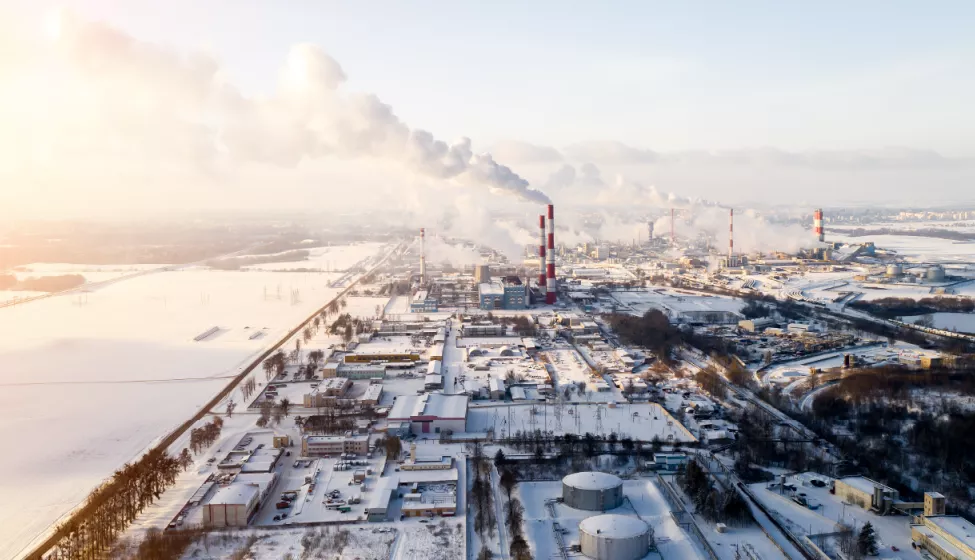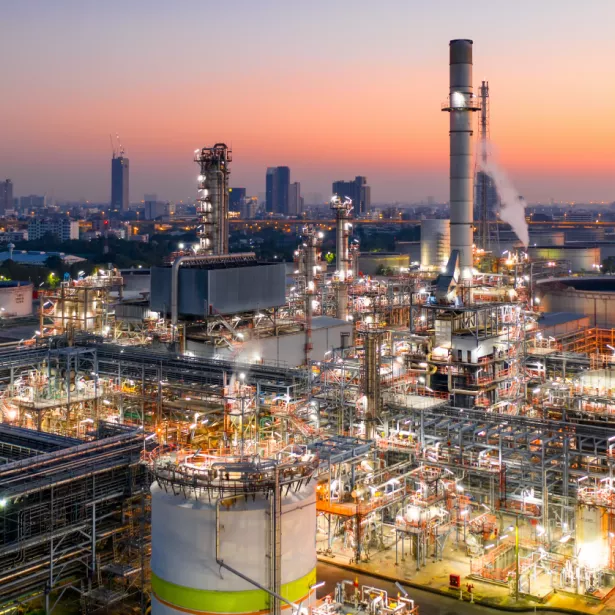March 25, 2021
Winterization and freeze protection practices for refineries and petrochemical facilities
During Texas's unexpected February freeze, many refineries and petrochemical facilities experienced equipment failures and process upsets due to the unprecedented cold weather. Several were forced offline, idling a significant percentage of the refining and plastics manufacturing capacity in the U.S. The effects continue over a month later, with increased utility bills and higher prices at the pump across much of the country.
In the aftermath of this extreme weather event, asset integrity managers and health, safety, and environment (HS&E) specialists at industrial facilities across the U.S. face decisions about how to address vulnerabilities to future freezing weather and other natural hazards.
Some guidance is available in resources and industrial consensus standards published by the American Petroleum Institute (API) and the American Institute for Chemical Engineers (AIChE). After a 2007 freeze event in Texas, the API expanded its winterization and freeze protection guidance in their recommended practices on fire protection in refineries.
The AIChE's Center for Chemical Process Safety also recently released a blueprint for addressing extreme weather events. These documents, along with a growing number of other publications, provide guidance for addressing meteorological hazards (e.g., freezing temperatures, wildfires, cyclones, and hurricanes) and geological hazards (e.g., seismic events, landslides, and tsunamis).
Historically, fugitive emissions, flaring events, losses of containment, and fires caused by natural hazards, including freeze events, were considered force majeure, providing some protection against inevitable liability claims. However, regulators and insurers now expect that identifying and mitigating risks associated with natural hazards should be proactively addressed.
Refineries and petrochemical facilities across the U.S. can limit operational, financial, health and safety, regulatory, and legal repercussions by conducting and updating hazard assessments that appropriately address freeze events and developing plans to minimize their consequences.
Identifying and Mitigating Risks from Cold Weather Hazards
As part of their process safety management programs, refiners and operators of petrochemical facilities regularly perform risk assessments to identify operational hazards and reduce the likelihood and consequences of industrial accidents. In this context, natural hazard assessments should consider the worst-case freeze scenario that might occur; identify existing gaps in the operability of critical equipment; and evaluate potential consequences. Facilities can implement specific winterization or freeze protection practices to help reduce the risk of process upsets should an extreme freeze event occur.
For example, a freeze hazard assessment might identify two potential risks: (1) the failure of a critical piece of equipment and subsequent loss of containment of a large quantity of highly volatile flammable liquid, and (2) reduced capacity or total loss of the fire protection system.
What winterization or freeze protection practices might the facility explore? Could insulation and steam tracing help prevent equipment rupture? Would it be prudent to invest in alternative fire protection systems and backup power and water systems? By systematically addressing these questions and others, the facility can better prepare for a freeze hazard.
Common Blind Spots in Winterization and Freeze Protection Practices
Assuming Freezing Weather is Uncommon
Facilities where freezing weather is uncommon may be at higher risk for consequences from freeze hazards.
Due to the relatively low likelihood of freezing weather events, their hazard assessments might not be sufficiently robust. Management may also be hesitant to invest in adequate winterization and freeze protection practices. This might help explain why the February freeze caused significant disruptions in Texas, while parts of the country that are exposed to more frequent and severe cold weather conditions experience minimal disruptions.
Focusing Solely on Freezing Water
Freezing water expands and causes cracking in equipment and piping. Therefore, much of the discussion surrounding freeze events focuses on the potential for water to freeze. However, other chemicals in a refinery or petrochemical facility may also be affected by lower temperatures. For example, hydrates (involving mixtures of water and certain gasses/liquids such as methyl mercaptan) can solidify in a pipeline and cause blockages at temperatures above 32˚F.
Failing to Account for Dead-Legs and Abandoned-in-Place Equipment
The consequences of freeze hazards are not limited to equipment in active operation. Sections of piping without flow and abandoned-in-place equipment can also accumulate water and freeze during cold weather events. A rupture associated with this equipment can cause a loss of containment of hazardous process fluids in adjacent operating equipment.
Neglecting Supply Chain Partners
A facility may appropriately address the freeze hazards of their own process and equipment and still be adversely impacted by ill-prepared suppliers. A utility may be unable to provide electricity, natural gas, or water, or a vendor may go offline, disrupting the flow of raw materials, so facility owners and operators should consider including supply chain issues when conducting emergency response planning.
Recovery & Repair and Recommissioning Processes
When recommissioning equipment after a freeze, facilities should consider that there may be hidden damage that could affect asset life and fitness for service. It might be prudent to incorporate freeze hazard-specific mitigation steps into inspection, testing, and preventative maintenance (ITPM) plans and assess changes and upgrades through the management of change (MOC) program. During recommissioning, potential freeze-related consequences could be identified through a pre start-up safety review (PSSR).
How Exponent Can Help
Exponent's multidisciplinary team of materials and corrosion scientists and electrical, mechanical, and process engineers can help refineries and petrochemical facilities identify and mitigate risks associated with freeze hazards. We can:
- Perform one-off freeze assessments, full hazard assessments, or reviews of historical hazard assessments to identify potential gaps and mitigation strategies
- Conduct gap analyses to understand how current operational practices compare to federal, state, and local regulations, industrial standards, and insurance requirements regarding natural hazards
- Identify critical equipment susceptible to cold weather, including water containing processes, instrumentation, control loops, and pressure safety valves
- Evaluate equipment against design criteria to assess survivability during a freeze event
- Identify appropriate winterization and freeze protection practices
- Conduct fitness-for-service evaluation of assets after an extreme weather event.




